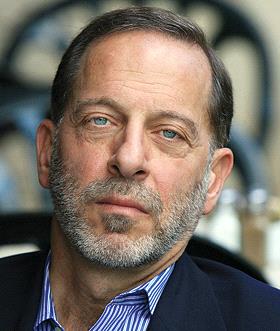Ammon News - by Gioia Forster - The Jordan Times
AMMAN — The US' constant failure in the Middle East has undermined the peace process, so Washington should clear the way for others who may succeed, according to an American professor of Arab studies.
“Decades of failed US efforts to bring about a solution to the Palestine question have left the US in no position to monopolise peacemaking,” Rashid Khalidi, the Edward Said Professor of Arab Studies at Columbia University in the US, said in a lecture late last week.
"… Actions by others will be much more important than those of the US," he added.
In the wake of US Secretary of State John Kerry’s recent visit to Jordan, Khalidi advocated for a complete overhaul of previous strategies to bring about preconditions for a just resolution to the Palestinian-Israeli conflict.
“If the aim is to really change the status quo, we need a radical new strategy for the Palestinian question,” Khalidi argued at the Columbia Global Centres Middle East in Amman.
“The US has to get out of the way,” he explained.
In his Edward Said Memorial lecture, Khalidi criticised Kerry’s plan unveiled at the closing session of the World Economic Forum at the Dead Sea on Sunday to help boost the Palestinian economy and facilitate the revival of direct negotiations between the Israelis and the Palestinians.
“This proposal is not new… There is nothing innovative or realistic about going down the same worn path,” he said.
Khalidi argued that the international community and specifically the Arab states must take on a greater leadership role as a precondition for the peace process.
“Many Arab states have the resources to be serious about this conflict, but they have let it fester for six decades,” he said.
“If they are willing to dedicate themselves with focus and coordination, these states could exert themselves effectively.”
The lecture was held on the 10th anniversary of the death of Edward Said, one of the most outspoken advocates for the rights of the Palestinian people, and professor of English and comparative literature at Columbia University.
Khalidi also argued that any preconditions for a just solution to the conflict must entail Palestinian unity.
“In order for any solution to come about, Palestinians must find ways to overcome both imposed and self-inflicted internal divisions,” he said.
The professor cited externally imposed divisions such as those between Palestinians in neighbouring countries and in Israel, Gaza, occupied Jerusalem and the West Bank, as well as the self-imposed split between Fateh and Hamas.
“It is urgent to get a Palestinian consensus on a real, long-term strategy and vision,” he said.
Khalidi also noted that it was important for the Palestinians and Arab states to engage in a greater, more comprehensive “PR campaign” to “gather and information about what is going on and to systematically engage specifically with the US public”.
“The Israelis constantly bombard the media with their PR; Palestinians don’t,” he added.
Khalidi, who had taken up the Edward Said Chair at Columbia University in 2003 at Said’s insistence, reiterated that efforts to suitable preconditions for a peace process could take five to ten years.
“This is not a problem that can be solved by one US administration or one Arab state. We need the international community to engage because everyone has a stake in this,” said Khalidi, whose most recent book “Brokers of Deceit: How the US has Undermined Peace in the Middle East” was published earlier this year.
